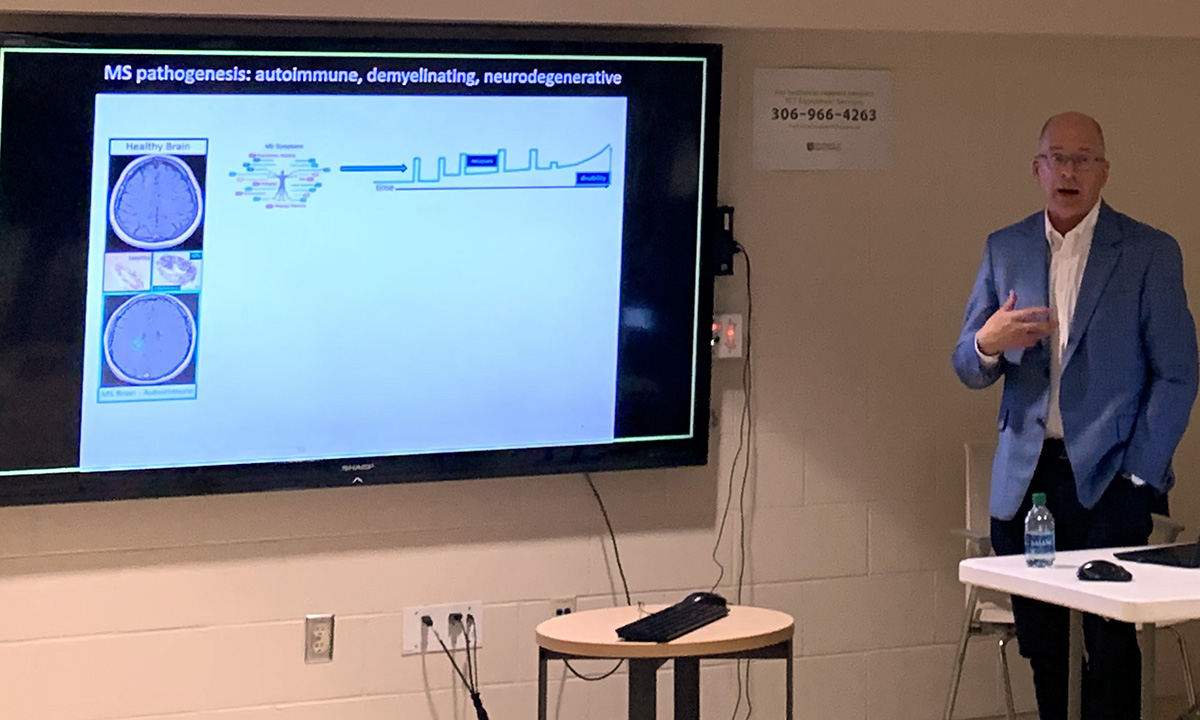
Researcher spotlight: Dr. Michael Levin
Levin’s breakthrough discovery at the University of Saskatchewan unveils new treatments for MS and ALS
Saskatchewan has one of the highest rates of multiple sclerosis (MS) in the world.
“It really is different here,” says Dr. Michael Levin, the inaugural Saskatchewan MS Clinical Research Chair and faculty member in the Department of Medicine's Division of Neurology in Saskatoon. “In the United States, people know of someone with MS, but here in Saskatchewan, everyone personally knows someone with MS, and usually it's a first degree relative or neighbour.”
In MS, our own immune response (ie. autoimmune) attacks and damages the brain, causing symptoms such as blindness, paralysis, or loss of sexual function. Most researchers study how to stop the immune system from attacking the brain. In fact, all current MS drugs suppress the immune response, however, persons living with MS continue to progress, leading to permanent disability and a lifetime of emotional and physical challenges.
It is this continued progression of disability, caused by nerve cell damage in the brain, that is the unique focus of Levin’s research. Levin, a practicing neurologist, sees MS as not one, but two diseases: autoimmune and brain.
What distinguishes Levin’s team from other research groups is their emphasis on protecting brain cells from damage. It is this focus on the nerve cells that led to Levin’s groundbreaking discovery.
Levin’s team of undergraduate, graduate and medical students and research scientists, discovered that a protein named A1 is abnormal in the nerve cells of people with MS.
A1 normally lives in the nucleus of a nerve cell. In MS, A1 leaves the nucleus and gets stuck in the neighboring area of a nerve cell called the cytoplasm. Because A1 is stuck in the wrong part of the nerve cell, the cell begins to die, causing permanent neurologic disability.
Using innovative drug design, Levin’s team identified multiple drugs that return A1 to the nucleus in nerve cells. Returning A1 to its home in nerve cells not only stopped nerve cells from dying, but also promoted their regrowth.
Additionally, A1 is also abnormal in the same way in dying nerve cells in amyotrophic lateral sclerosis (ALS), thus these drugs can also be used to prevent disability in people with ALS.
Levin says that “this is a first of its kind drug therapy that blocks nerve cell death and damage,” and that the next steps are to test drug toxicity and efficacy in mice, thereby creating medicines for use in clinical trials to treat MS and ALS, for which current therapies provide little relief.

